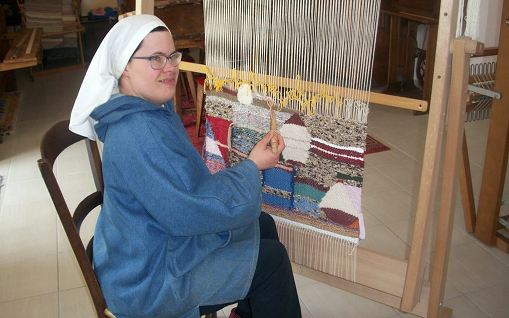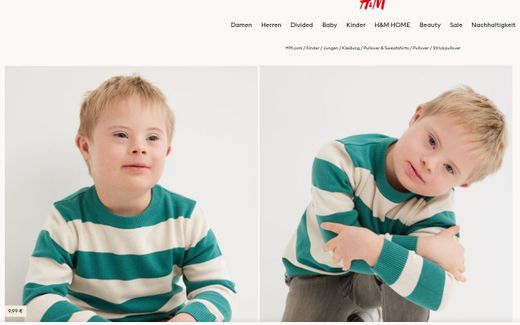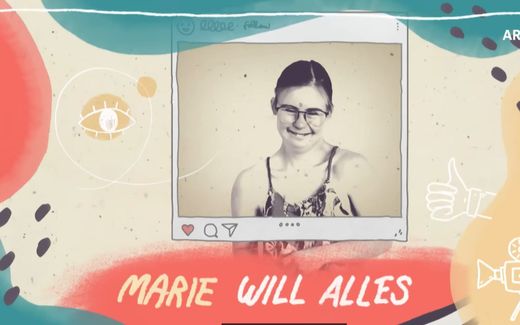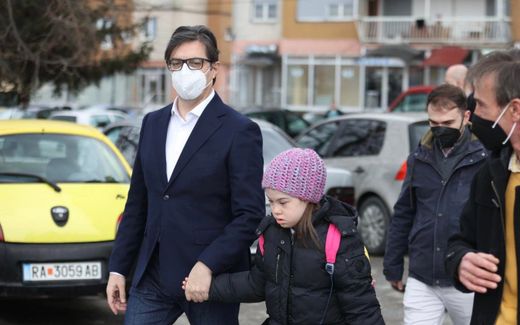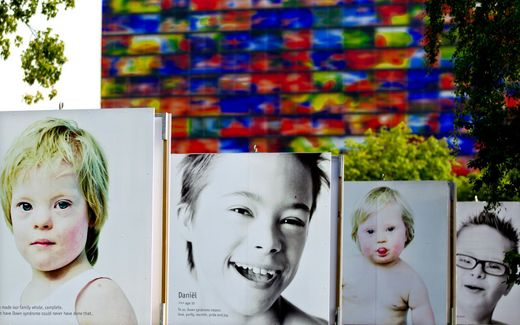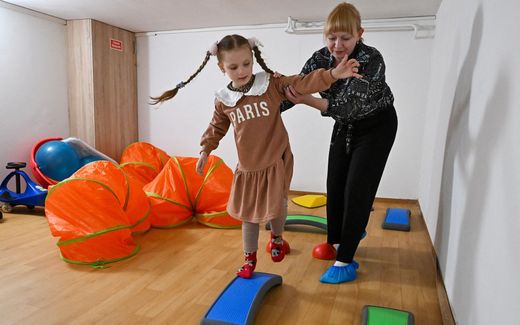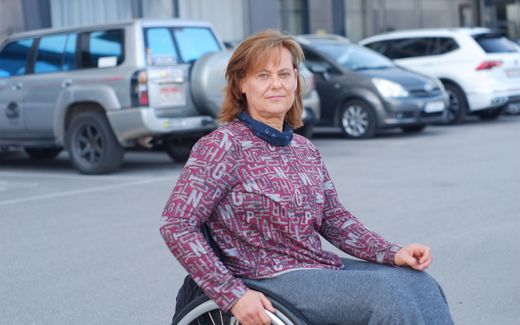The first MP with Down Syndrome: “I have four years to prove that I can do it”
08-02-2024
Southern Europe
Lex Rietman, RD
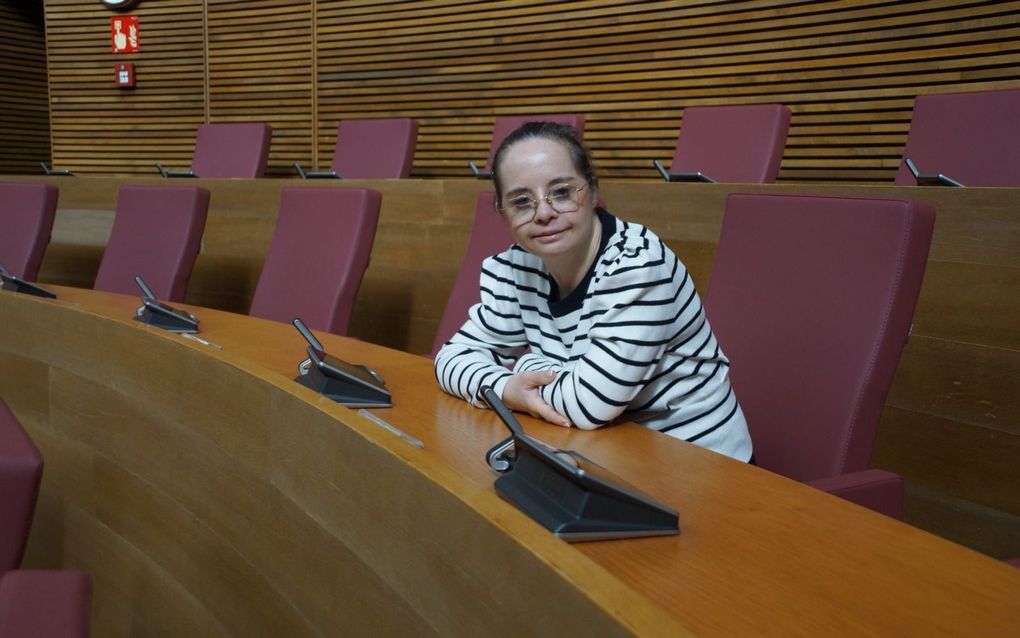
Mar Galcerán may very well be the first MP with Down Syndrome. Photo Lex Rietman
Southern Europe
For six months, she has been a member of parliament in a region with a population of 5 million. Never before has anyone with Down's Syndrome made it to parliament. But the Spanish Mar Galcerán does not shy away from responsibility. A conversation about disabilities, politics and relationships.
For a moment, things seem to go wrong. We agreed to meet at noon, but fifteen minutes later Mar Galcerán is still nowhere to be seen. At least not in Les Corts Valencianes, the parliament of the Spanish region of Valencia in the city of the same name.
A call from the press officer brings clarification: Mar is shopping for shoes with her mother. Mistake on my part, admits the press officer. Forgot to remind her of today's appointment. Fortunately, she shows up a little later.
Congenital defect
For six months, Mar Galcerán has been a Member of Parliament, 1 of 99 in the parliament of the autonomous region of Valencia. Nothing special in itself, except that the 46-year-old Valencian has Down Syndrome. Galcerán is the first person with this congenital defect to make it to parliament in Spain. By all accounts, she is also the first in Europe.
That attracts attention. After the interview with the Dutch daily Reformatorisch Dagblad, she has a Zoom interview with the BBC, a week later an interview with an Austrian broadcaster. She is becoming increasingly adept at it. Press officer José Martí of her party, the conservative Popular Party (PP), estimates that she has given about 50 interviews to Spanish media. The foreign press has already been on her doorstep some 15 times.
After decades in which the Valencia region under PP governments made headlines countless times with a series of corruption scandals unprecedented even by Spanish standards, the party could use a little positive attention. Mar Galcerán vouches for it - even if press officer Martí assures that his party "does not want to take advantage" of the sympathy widely generated by a parliamentarian with Down Syndrome.
Active
For four years, Galcerán was president of Asindown, an association dedicated to integrating people with Down Syndrome into everyday life. The aim is to enable them to participate as active members of society. Galcerán herself was certainly active, as she did this work alongside her job in the administration of the regional Ministry of Health.
She had ended up there after participating in Valencia's first civil service examination for people with intellectual disabilities. Now, from her parliamentary seat, she wants to work for "a great collective", as she put it in her first speech to the people's representatives. A collective that, in her view, has too often and unfairly been overprotected.
Recently, the Spanish parliament almost unanimously approved a constitutional amendment. Article 49 now no longer refers to "less abled persons" but to "persons with disabilities". I assume you have followed this amendment with special interest.
"Yes, because when you emphasise what is 'less', you are saying that people with disabilities are worth less. And we are worth as much as anyone else. The terms "disabled" and "invalids" are an insult to people with disabilities.
Actually, the latter term is not correct either because people with disabilities do not have lesser capabilities. They have just as many qualities. That's why I prefer to say "people with different abilities". So there is still a lot of work to do."
What did you think when your party put you in an electable position in the latest regional elections?
"I just thought: there's a chance I could get elected. And (smiling) now I am a deputy."
I can imagine it was cause for immense joy.
"More than joy, I felt a desire to engage with Valencians, to serve. After all, that is our job as representatives of the people. I wanted to do my bit."
What does it mean to you to be the first MP with Down Syndrome?
"For me, it is a way to make people with disabilities visible. And to change society's view of people with disabilities, in my case Down Syndrome. Many people think that we are not capable of holding an office that carries great responsibility. My job is to demonstrate that I am capable of it. It is important that people learn to look beyond the disability, to get to know the person behind the disability."
What were the reactions like when you were elected to parliament?
"Divergent. On the one hand, you had a group of people who were happy for me and confident that I could handle it. These were friends, family members and PP party members. And on the other side were people who didn't know me. These were those who thought I would not be able to do the job of deputy. I have four years to prove that I can do it."
You joined the Popular Party at a young age. What attracted you to that party?
"At 18, I joined the PP's youth organisation because I share the party's ideals. It has always championed people with disabilities, people with different abilities. In 2010, for instance, the PP was the party that introduced modified civil service exams for people with intellectual disabilities. I passed the first time such an exam was taken.
Furthermore, I think it is important to defend our identity. We should cherish our folk customs and traditions. As well as our language – both Spanish and Valencian."
Your party governs in Valencia together with the far-right party Vox. That was the only party to vote against the amendment of constitutional article 49 in the Spanish parliament recently.
"I don't understand this attitude of Vox. You have to accept the change (from "less abled" to "people with disabilities", LR) because it is positive. Words are very important. This constitutional change should have been an all-party state pact. Vox should have gotten over its opposition to the government in Madrid and joined the yes vote. But here in Valencia, we have a fine relationship with Vox. I get on well with them."
Are there people you especially admire?
After a brief silence: "My mother is an inspiring example to me. She works hard. By profession, she is a teacher of therapeutic pedagogy, and she mentored me from an early age. As a matter of fact, she still does. I think she is a very good mother and teacher who takes good care of her children and has always treated my brothers and me equally. She always says that I am the apple of her eye. My father also does that sometimes, but my mother more often."
What do you do in your spare time?
"I love dancing and Latin American music: salsa, merengue. I dance Valencian jotas and sevillanas, which is also what those shoes I bought this morning with my mother were for. With those sturdy heels for stamping. I also like to ski. And I'm in a company defiling at the celebration of "moros y cristianos" (a Valencian folk festival commemorating the historical battle between Moors and Christians in this area, LR).
Are you a believer?
"I don't go to mass much, but I am religious and a Christian. Faith is definitely important to me. When a beloved person has died, I always pray to God and the Virgin."
You have always lived at home with your parents. Do you also have a partner?
"I have many friends but no boyfriend. To be happy, it is really not necessary to have a partner. I do know these couples who both have Down Syndrome. But that's nothing for me: taking the easy way out to form a couple, haha. That's not my way.
I am more in favour of love flowing. It should flow naturally; I don't go looking for a boyfriend. If one turns up, that's fine. And if he doesn't turn up, the world really doesn't collapse."
Galcerán has not thought about a jump to national politics. For now, she wants to work for Valencians "to the best of her ability". But where is the line, I wonder. It is nice to underline that people with disabilities have not less but different qualities, but could she ever become a party leader, for example?
As Galcerán is already giving the next interview, I ask press officer José Martí. "Everyone has their qualities and limitations," is his reply. "And so does Mar."
This article was translated by CNE.news and published by the Dutch daily Reformatorisch Dagblad on February 3, 2024
Related Articles

